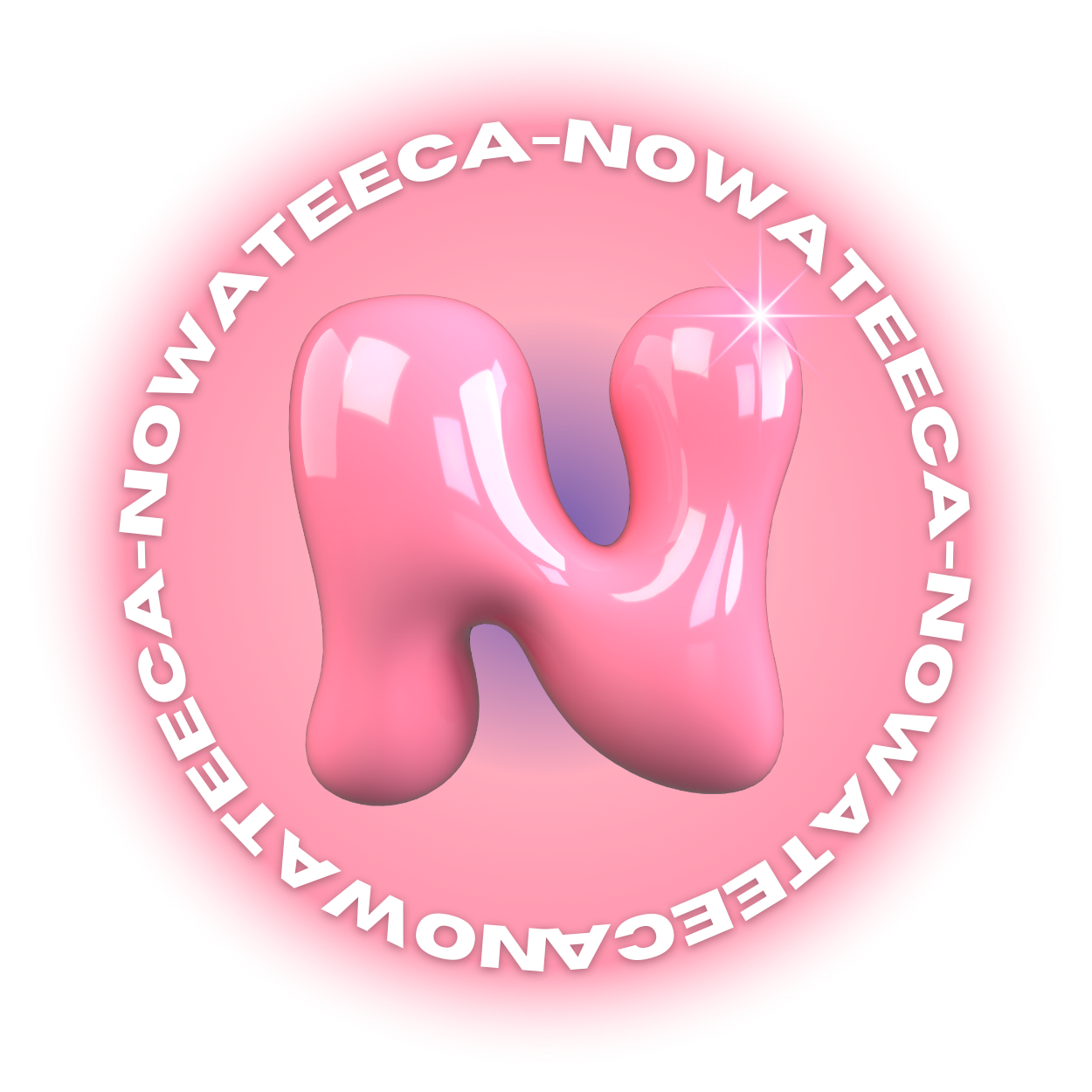News
Which football teams have won the league without a shirt sponsor?

“Chelsea are undeniably in the title race, regardless of their manager’s remarks,” wrote Will Nichols before Christmas. “But who was the last team to win the English top flight without a shirt sponsor? And has this happened more recently in another country?”
Chelsea’s subsequent distancing from the title race doesn’t take away from the intrigue of this question. Starting with the English top flight, regular contributor Dirk Maas delved into the excellent True Colours website—a treasure trove of nostalgia for readers of this column—and uncovered the answer: Aston Villa in 1980-81. Remarkably, not only did they go through the entire season with just 14 players (a fact worth reflecting on if you’re under 40), but their shirts were also sponsor-free.
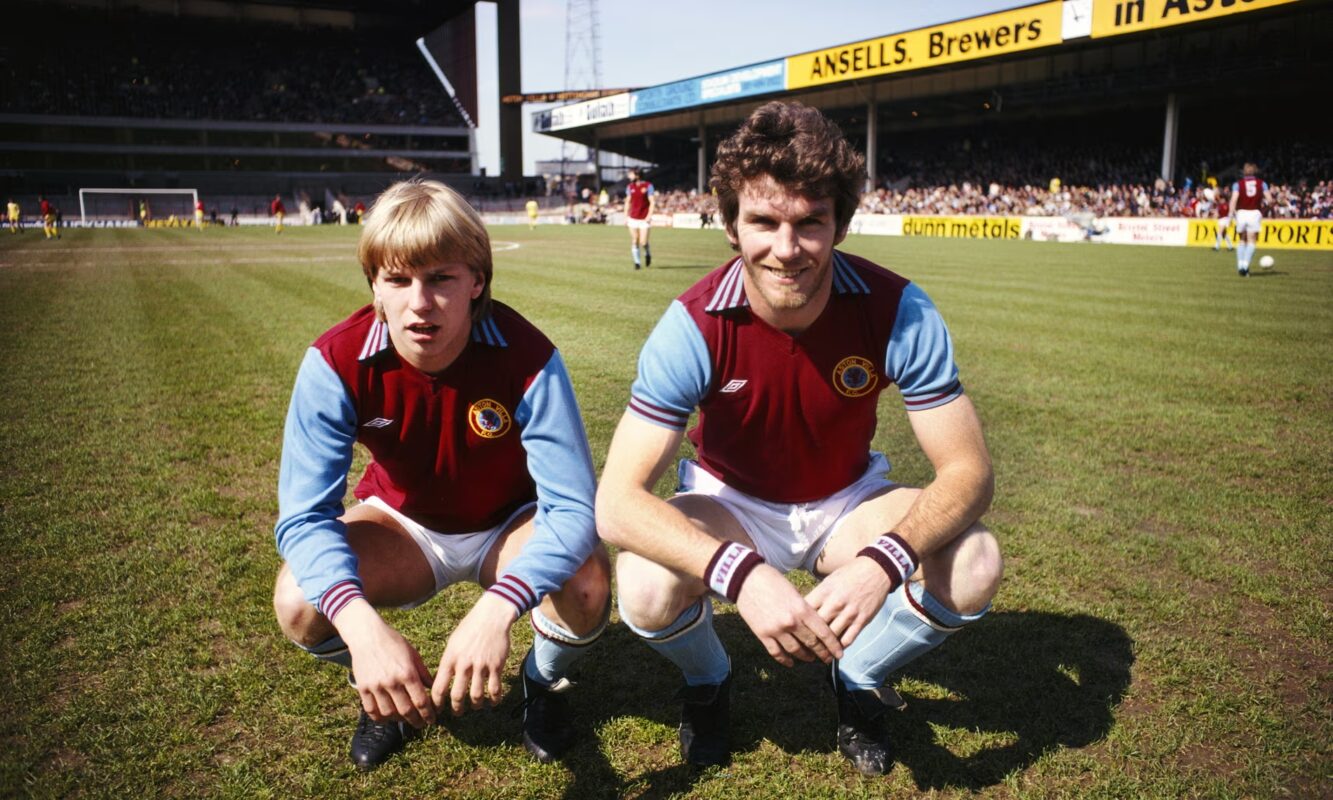
In the 1980-81 season, only eight of the 22 top-flight teams had shirt sponsors, including the reigning champions of England (Liverpool) and Europe (Nottingham Forest):
- Brighton & Hove Albion: British Caledonian
- Coventry: Talbot
- Everton: Hafnia
- Liverpool: Hitachi
- Middlesbrough: Datsun Cleveland
- Nottingham Forest: Panasonic
- Southampton: Rank Xerox
- Stoke: Ricoh
Despite Aston Villa’s league triumph that season, they didn’t secure a sponsorship deal until 1982-83, by which time they were champions of Europe. Their first sponsor, Davenports, a local brewery, signed on for a single season. Afterward, Villa’s shirts featured Mita (and occasionally Mita Copiers) for the next decade.
Aberdeen, under Sir Alex Ferguson, also won three league titles without a sponsor, with the most recent in 1984-85. Following that, sponsorship became more prevalent, as CR Smith, Scotland’s leading uPVC window manufacturer, marked an era of commercial growth by sponsoring Celtic in 1985-86 and then Graeme Souness’s Rangers in consecutive title-winning seasons.
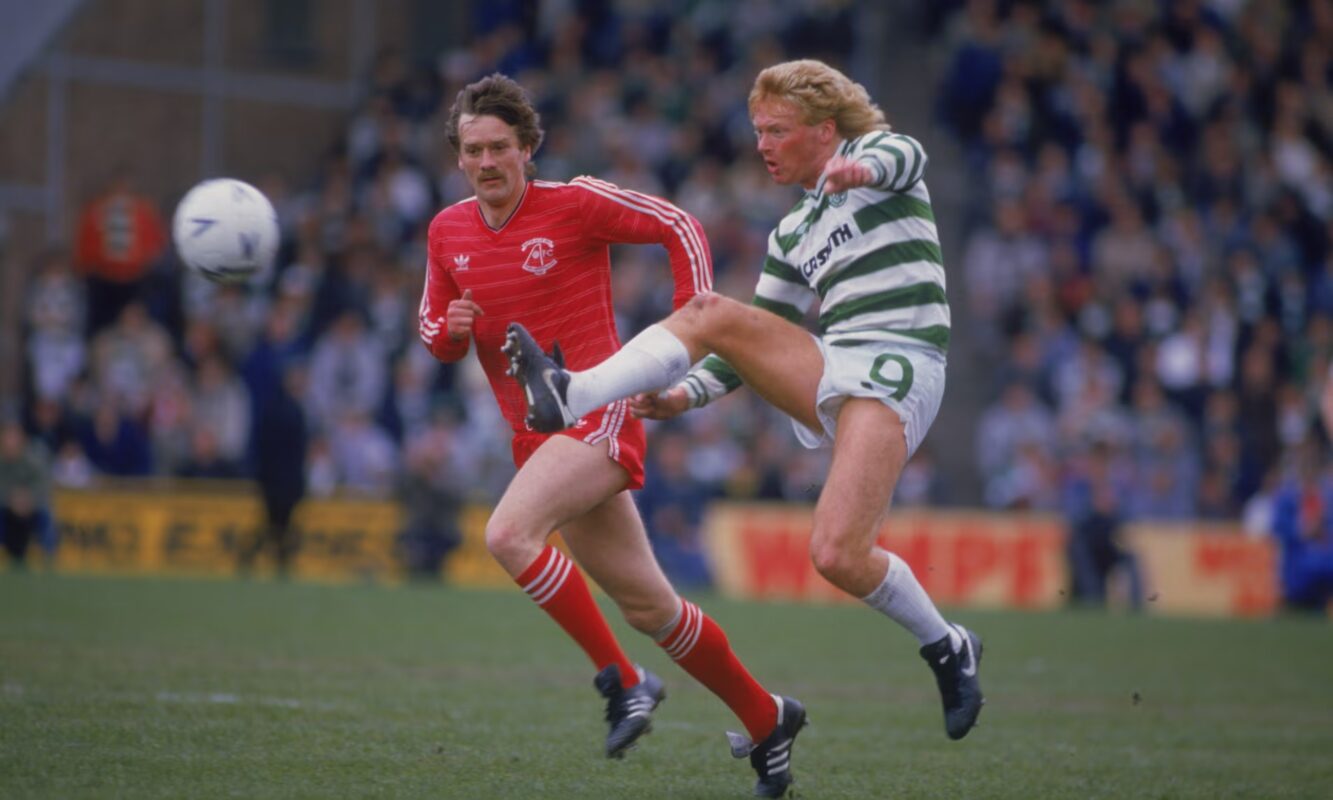
Dirk Maas has highlighted some more recent examples of unsponsored champions across Europe: Partizan Belgrade (Serbia, 2011-12), Sparta Prague (Czech Republic, 2013-14), Budapest Honvéd (Hungary, 2016-17), and Dynamo Kyiv (Ukraine, 2020-21).
It appears that only one of Europe’s top five leagues has produced an unsponsored champion in the 21st century: Barcelona in 2004-05 and 2005-06, back when the motto “Més que un club” carried less irony.
In other major leagues, Juventus won the Serie A title in 1981-82 wearing their iconic, sponsor-free home kit. A few years earlier, in 1978-79, FC Köln claimed the Bundesliga title with a team that featured Harald Schumacher and the prolific Dieter Müller—famous for scoring six goals in a single game. They narrowly edged Borussia Mönchengladbach (whose shirts displayed the sponsor erdgas heizung) on goal difference, even after Gladbach’s remarkable 12-0 win over Borussia Dortmund on the final day—a story for another time.
Finally, let’s turn to Ligue 1. Anyone who has watched Amélie at least once a year since its 2001 release might recall how French football embraced shirt sponsorships, often featuring oversized logos on both the front and back of kits. After combing through various kit archives, it appears the last team to win the French championship without a sponsor was Saint-Étienne in 1969-70. By the time they claimed the title again four years later, they more than compensated for the lack of branding.
Non-Football Athletes Representing Football
“At the World Darts Championship, France’s Thibault Tricole wore a shirt featuring the badge of his local football team, Lorient, on the back in an unpaid collaboration,” notes Niall McVeigh. “What other non-football athletes have incorporated football crests into their gear, either officially or unofficially?”
Sticking with darts for now, Gareth Watkins points out: “Former BDO world champion Glen Durrant, a dedicated Middlesbrough fan, incorporated the lion detail from their crest into his stage outfits.”
Although Durrant switched his shirt design after moving to the PDC in 2019, he famously wore a Middlesbrough kit during his three consecutive BDO world title victories. Now a part of Sky’s exceptional commentary team, Durrant even sported a Boro Shirt Museum Christmas jumper during this year’s coverage.
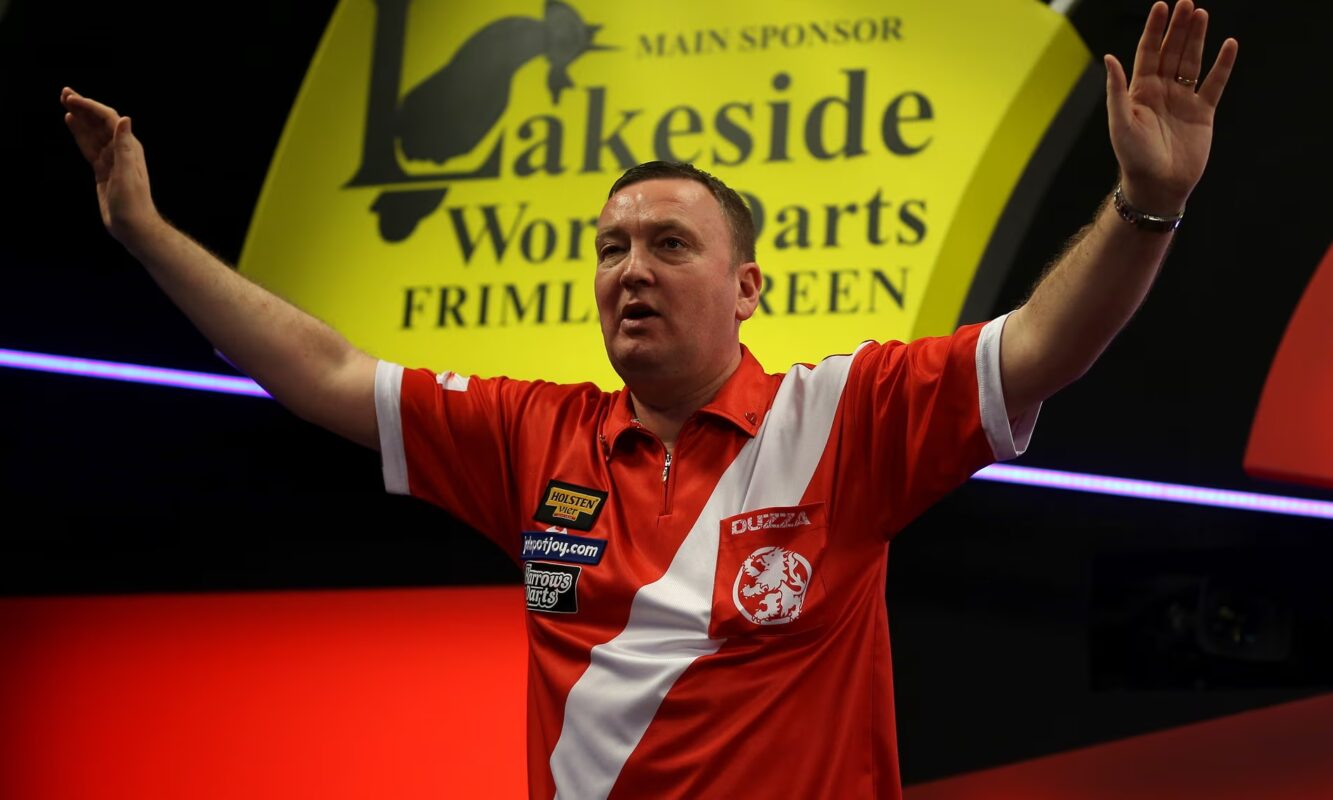
To our knowledge, Durrant’s jumper didn’t feature JUNINHO 10 or SLAVEN 7 on the back. However, it’s not uncommon for athletes to showcase their support for both a club and a player. Rit Nanda shares an example: “In 2011, Danish tennis star Caroline Wozniacki warmed up for her match against Flavia Pennetta at the Qatar Open wearing a Liverpool jersey. A fan of the club, she had received the signed shirt from then-captain Steven Gerrard through the Qatar Tennis Foundation.”
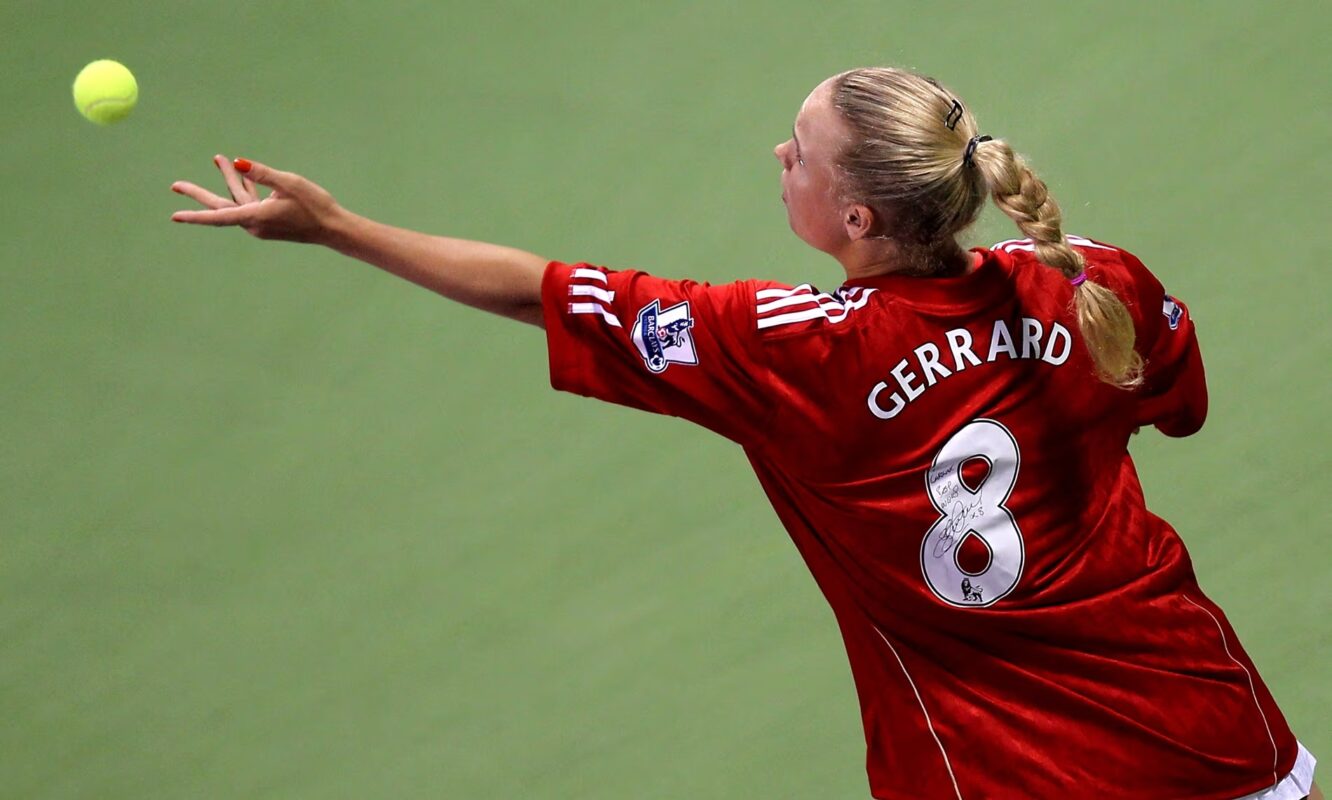
Ed Sheeran might be Ipswich Town’s most famous supporter, but we can confidently say he’s not the toughest. “Current British and Commonwealth heavyweight boxing champion Fabio Wardley, a passionate Ipswich Town fan, proudly displays the ITFC colors and crest on his shorts during his bouts,” writes John Chubb.
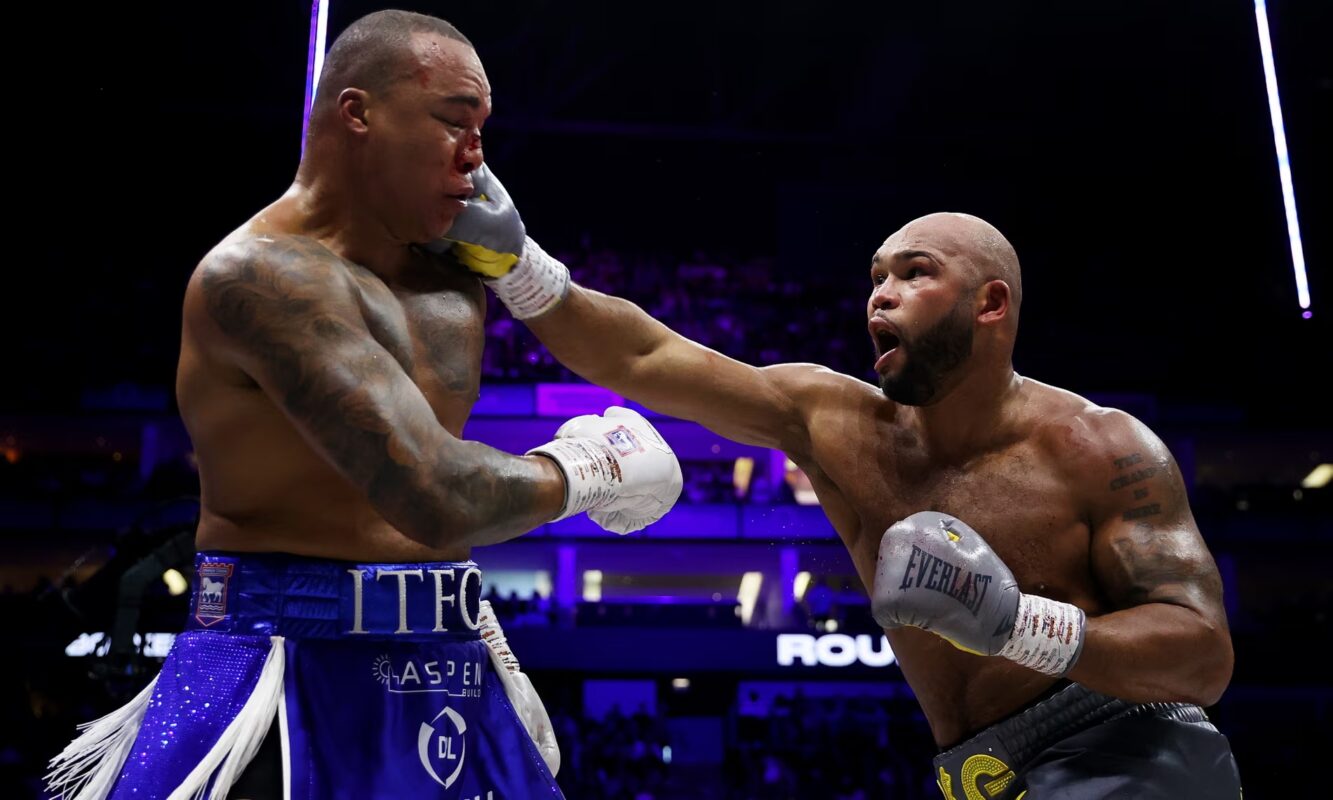
Finally, to wrap things up for this week, let’s turn to the worlds of bobsleigh and beach volleyball. “Since many European sports clubs are multi-sport organizations, there are quite a few examples,” starts Graham Love. “Some of the more unusual cases include German beach volleyball duo Sara Goller and Laura Ludwig competing under Hertha BSC branding. SpVgg Unterhaching, a club from the Munich suburbs, also partnered with a local bobsleigh club and had Olympic champions competing while sporting the club’s logo.”
Knowledge Archive
“Which football clubs have been sponsored by news organizations, and have they ever played against another team also sponsored by a news organization?” pondered Rich Cunningham in 2021.
Roger Thomas has tuned in with the first answer to this one. “In the 1983-84 season, Reading were sponsored by Radio 210, a local station serving the city. The sponsorship had to be stopped due to regulations banning numbers on shirts to avoid confusion with player numbers. Radio 210 featured pop music, news bulletins, and some notable presenters, including Steve Wright, Mike Reid, and Bob Harris, who later gained national fame.”
Justin Horton reminds us of the late Robert Maxwell’s connection to Oxford United: “They were twice sponsored by newspapers: in 1981-82 by the Sunday Journal and for most of 1984-85 by the Sunday People, the latter owned by the late Maxwell, whose name still occasionally appears in the press.”
Andrew Wright takes a creative approach to the idea of a media organization: “Having read in the Top Tips page that I could avoid jet lag by simply taking an earlier flight to arrive refreshed, I’ll nominate Viz, which sponsored Blyth Spartans in 2007-08. On a more typical note, I remember Leeds United being sponsored by the Yorkshire Evening Post at one point.” This was during the 1991-92 season, Andrew. Leeds almost faced a QPR team with Classic FM (which at least has news bulletins) as their shirt sponsor, but instead, Admiral took over as Leeds’ sponsor for 1992-93.
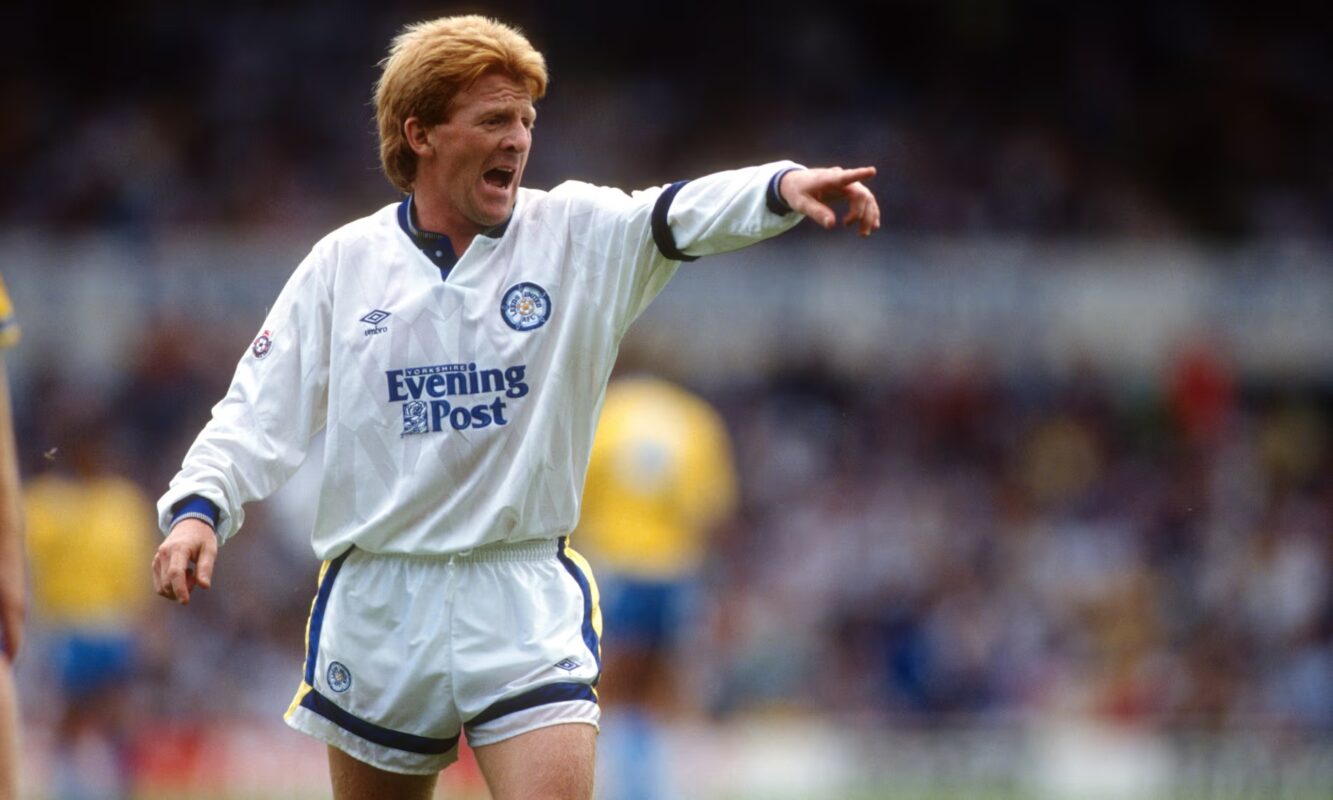
Richard Franks has some breaking news: “In the 1996-97 Division One, there would have been two matches between teams sponsored by news organizations, as Portsmouth were backed by local paper The News and Millwall by the South London Press.” Unfortunately, this turns out to be false. Millwall were in the third tier, meaning that matchup never took place. Cardiff City, sponsored by the South Wales Echo for five seasons in the 1990s, also never played another media-sponsored team.
However, if we look at the Third Division in the 2001-02 season, we do find a meeting of mid-table teams with evening newspapers as their shirt sponsors. Plymouth Argyle, sponsored by the Evening Herald, faced York City, backed by the Evening Press, twice. The Herald enjoyed a 1-0 victory at Home Park (with a match report from the Evening Press worth reading) after a 0-0 draw at Bootham Crescent earlier in the season.
